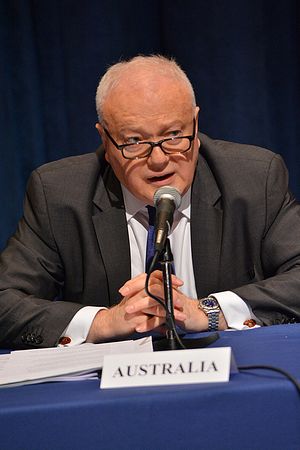For the first time during its two-year term on the UN Security Council, Australia voted against a proposed resolution. The resolution in question demanded that Israel end the occupation of Palestinian territories over the next three years and was presented to the council by Jordan on behalf of Arab states. The only other country on the council to vote against the resolution with Australia was the United States, a traditional ally and supporter of Israel on critical votes relating to Israel’s position vis-a-vis the Palestinian territories. The vote took place on Tuesday, December 30. Among UN permanent members, France, Russia, and China voted in favor of the resolution. The United Kingdom abstained.
In addition to the U.S. and Australia voting against the resolution, five countries on the council abstained, and only eight voted in favor of the draft. Nine votes in favor (with no veto-wielding permanent members voting against) are required for a resolution to pass in the UN Security Council. The chief Palestinian representative in the Australian capital Canberra warned the Australian government that it had damaged its relationship with the Arab world by joining the United States in standing against the resolution at the UN Security Council. The Guardian reports that Izzat Abdulhadi, the head of the general delegation of Palestine to Australia and New Zealand, noted that he expected Australia to “at least” abstain. “It was very disappointing and regrettable … and will unfortunately affect relations with Palestine and the Arab world,” Abdulhadi added. “It’s really very disappointing and I can’t understand why the decision was taken. We don’t know what the reasons are for this,” he continued.
Gary Quinlan, the Australian Permanent Representative to the United Nations, reiterated Australian support for a two-state solution to the Israel-Palestine issue. In explaining Australia’s “no” vote, Quinlan pointed out that “the draft resolution under consideration today will not help this process and that is why we have voted against it.” He added, “It lacks balance and seeks to impose a solution put forward by one party alone. Final status issues can only be resolved between the two sides. A process agreed by both sides is the only way forward to reach an enduring agreement.” “The violence experienced in recent months in the Palestinian territories and Israel underlines the terrible human costs of the failure of final status negotiations and how fragile the situation is in the absence of genuine progress towards establishing a Palestinian state – an objective in which Australia believes and to which we are committed,” continued Quinlan.
It remains to be seen if the fallout from the unexpected Australian “no” vote will have a serious short-term impact on Australia’s relations with the Arab world. Based on current reports, the timing of the vote was unexpected, with most observers expecting the draft resolution on Palestine to make it to the council’s voting agenda in the New Year. The vote should not indicate a growing alignment between Australia and the United States on the question of Israel and Palestine. Both delegations provided entirely separate justifications for their “no” votes, with U.S. Ambassador Samantha Power noting that the resolution was “one-sided” in the United States’ view and ignored Israel’s security concerns.

































